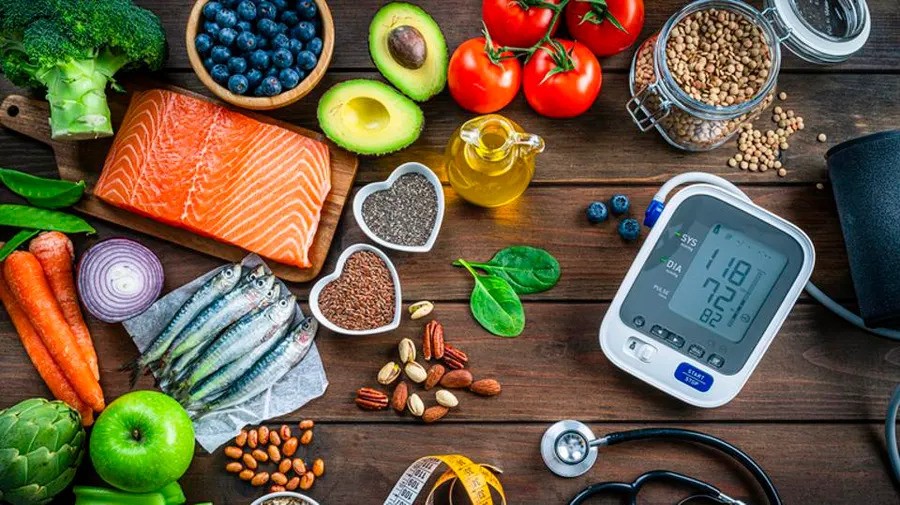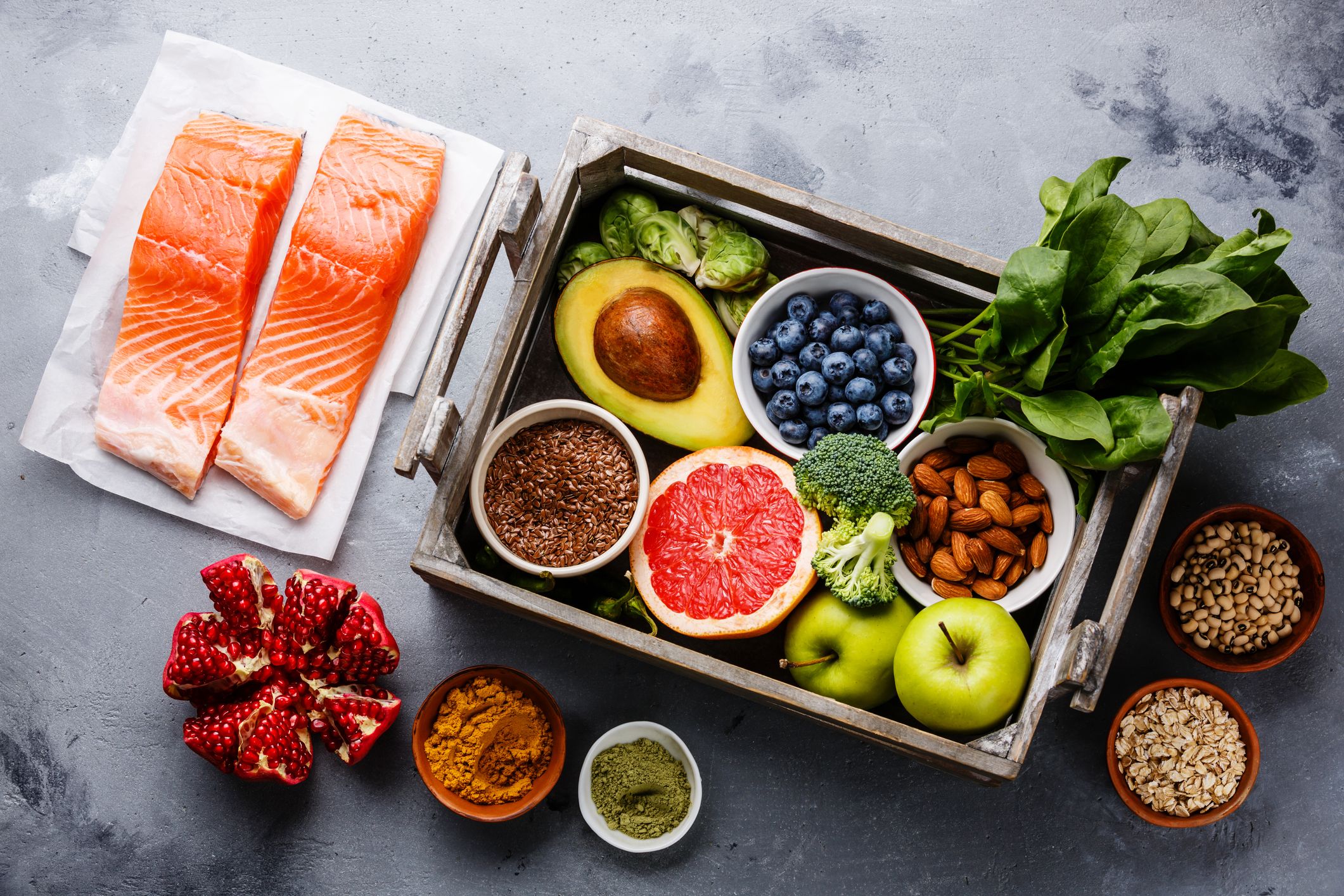Diet For High Blood Pressure - Foods To Lower Your Numbers Naturally
Hypertension, or high blood pressure, is on the rise in today's fast-paced society due to abundant processed foods, high stress levels, and other risk factors. Thankfully, a diet for high blood pressure can be an effective tool for treating the illness and lowering the risk of consequences.
Author:Katharine TateReviewer:Karan EmeryFeb 19, 20241.9K Shares31.2K Views

Hypertension, or high blood pressure, is on the rise in today's fast-paced society due to abundant processed foods, high stress levels, and other risk factors. Thankfully, a diet for high blood pressurecan be an effective tool for treating the illness and lowering the risk of consequences. People can take charge of their health and naturally lower their blood pressure readings by eating mindfully and adding nutrient-rich foods into their diet.
DASH Diet (Dietary Approaches To Stop Hypertension)
Dietary Approaches to Stop Hypertension, or the DASH Diet, is an evidence-based eating plan that aims to reduce hypertension and improve cardiovascular health. It promotes a healthy diet that is well-rounded by limiting salt, saturated fat, and cholesterol and increasing consumption of whole grains, lean meats, and low-fat dairy products. The DASH Diet places an emphasis on nutrient-dense meals, which means that blood pressure-regulating minerals like potassium, magnesium, and fiber are plentiful on this diet.
In addition to lowering blood pressure, its focus on whole foods and portion control aids with weight management and lowers the risk of chronic diseases like diabetes and heart disease. The DASH Diet provides a realistic and long-term solution for people to enhance their cardiovascular health and wellness because of its evidence-based approach and adaptability.
Fruits And Vegetables
A diet rich in fruits and vegetables is vital for good health because they provide a variety of nutrients that support various bodily functions, including vitamins, minerals, fiber, and antioxidants. Their low calorie and fat content makes them great options for those trying to control their weight or keep it off. In addition to lowering cholesterol and supporting digestive health, the potassium and dietary fiber included in fruits and vegetables aid in blood pressure regulation.
Phytonutrients like flavonoids and carotenoids, which give them their vivid colors, have been associated with a host of health benefits, including less inflammation, better immune function, and protection from chronic diseases like diabetes, cancer, and heart disease. To achieve optimal health and longevity, it is recommended to incorporate a variety of fruits and vegetables into meals and snacks. This will not only offer flavor and texture, but also guarantee a nutrient-rich diet.
Whole Grains
The high fiber and varied nutrients included in whole grains make them an important component of a healthy diet. The bran, germ, and endosperm are all still present in whole grains, in contrast to refined grains that have had these components removed during processing. Because to their high vitamin, mineral, antioxidant, and dietary fiber content, they aid digestion, control blood sugar, and reduce cholesterol.
Research has linked the consumption of whole grains to a lower risk of chronic diseases, including cardiovascular disease, type 2 diabetes, and several malignancies. Oats, quinoa, brown rice, barley, and whole wheat are just a few examples of the many whole grains that can be used to enhance the nutritional content, texture, and flavor of food while also improving one's health.
Lean Proteins
You can't have a balanced diet without lean proteins, which are rich in critical nutrients but low in unhealthy saturated fats and cholesterol. Foods that are low in fat and calories include skinless chicken, fish, tofu, beans, and lean meats like beef and pork.
Muscle growth, healing, and general bodily function rely on the high-quality protein included in these foods. Lean proteins are a good source of nutrients; for example, fish is a good source of omega-3 fatty acids, while plant-based proteins like tofu and lentils are good sources of vital amino acids.
Lean proteins are a great addition to meals since they make you feel full longer, which aids with weight loss and blood sugar stabilization. Protein has several health benefits, including lowering cholesterol and the risk of cardiovascular disease and obesity. However, eating a heart-healthy diet that includes lean protein sources rather to higher-fat ones is possible.
Healthy Fats
A healthy diet must include healthy fats because they aid in the absorption of fat-soluble vitamins, promote cell growth, shield organs, and supply necessary fatty acids. Healthy fats can be found in avocados, almonds, seeds, olive oil, flaxseeds, fatty fish (such as trout and salmon), and other seafood. The majority of these fats are unsaturated, making them beneficial for heart health, inflammation, and cholesterol levels.
Some of these fats are polyunsaturated while others are monounsaturated. Consuming meals that are rich in healthy fats can aid in satiety, improve taste and texture, and contribute to general health. Because of their high caloric density, good fats should be consumed in moderation. However, when included in a balanced diet, they can help prevent diseases and promote long-term health.
Low-Fat Diary
There is less saturated fat in low-fat dairy products like skim milk, low-fat yoghurt, and reduced-fat cheese, and they are nevertheless good sources of protein, calcium, and vitamin D. A diet that includes low-fat dairy products can help maintain healthy bones, boost muscle development and repair, and aid in maintaining a balanced nutritional profile.
A healthy weight is essential for warding off chronic diseases like obesity and heart disease, and low-fat dairy products can assist people in doing just that. Enjoyed plain or mixed into baked goods, low-fat dairy products are an easy and healthy way to get the nutrients you need every day and help promote your health in the long run.
Limit Sodium
Optimal health and the prevention of diseases like high blood pressure, heart disease, and stroke are achieved by limiting sodium consumption. Although the body needs sodium for a number of processes, it can cause fluid retention and high blood pressure if consumed in excess, which is common in processed and packaged meals. In order to reduce the chance of developing hypertension and its problems, it is recommended that persons reduce their intake to below 2,300 milligrams per day, or even lower for some people.
To reduce sodium intake, it is useful to cook at home more often, eat fresh, nutritious foods, and read labels closely to detect items with high sodium content. To further reduce sodium intake, try flavoring foods with spices, herbs, lemon juice, or vinegar instead of salt. Improving one's health and well-being can be as simple as making an effort to cut back on salt.
Herbs And Spices
Seasoning food with herbs and spices not only makes it taste better, but it also has several health benefits. The medicinal benefits of herbs and spices have been recognized for generations. Herbs like basil, thyme, and oregano, as well as spices like cinnamon, turmeric, and ginger, are rich in antioxidants, vitamins, and minerals. For instance, cinnamon may assist with blood sugar regulation, ginger's anti-inflammatory characteristics can ease nausea and improve digestion, and so on.
Aside from adding flavor to food without adding too much salt or bad fats, herbs and spices are great tools for crafting healthy and tasty meals. Incorporating a wide range of spices and herbs into one's diet has multiple benefits, including improved health and flavor in food.
Omega-3 Fatty Acids
Essential fatty acids, such as omega-3 fatty acids, are vital to cardiovascular health, cognitive function, and general wellness. Flaxseeds, chia seeds, walnuts, and fatty fish like sardines, mackerel, and salmon are good sources of omega-3s, which have anti-inflammatory qualities. Because they reduce triglyceride levels, blood pressure, and the production of blood clots, these fats are very helpful in lowering the risk of heart disease.
Omega-3 fatty acids have several positive effects on health, including lowering the risk of cognitive loss associated with aging, regulating mood, and enhancing cognitive performance. Supplementing with omega-3 fatty acids or eating more foods that are high in these nutrients can help people get the nutrients they need and improve their health in general.
Diet For High Blood Pressure - FAQ
What Fruits Can Reduce High Blood Pressure?
The top fruits for lowering blood pressure include bananas, apples, pears, apricots, grapes, raisins, kiwis, mangoes, watermelon, pomegranate, plums, prunes, avocado, cantaloupe, honeydew melon, tomatoes, citrus fruit, berries, and more.
Can I Eat Rice In High Blood Pressure?
Rice does have an effect on blood pressure levels. A study conducted by the Harvard Medical School found that regular consumption of white long-grain rice was associated with an increased risk for developing high blood pressure, while brown and black varieties had no such link.
Is Cucumber Good For High Blood Pressure?
Cucumbers are a good source of potassium, magnesium and dietary fibre. These nutrients are known to lower blood pressure, thus reducing the risk of heart diseases. Research has also proved that regular consumption of cucumber juice was helpful in reducing blood pressure, in elderly people with hypertension.
Final Words
Managing hypertension and improving cardiovascular health can be approached holistically by adopting a diet for high blood pressure. Nutrition can be a powerful tool in the fight against hypertension if people eat more complete, unprocessed foods and less sodium and saturated fats.
Always keep in mind that even little adjustments to your diet can have a big impact on your overall health and the likelihood of developing cardiac problems. When you're on the road to better blood pressure control, let the food on your plate be both your medicine and your healer.

Katharine Tate
Author

Karan Emery
Reviewer
Latest Articles
Popular Articles
